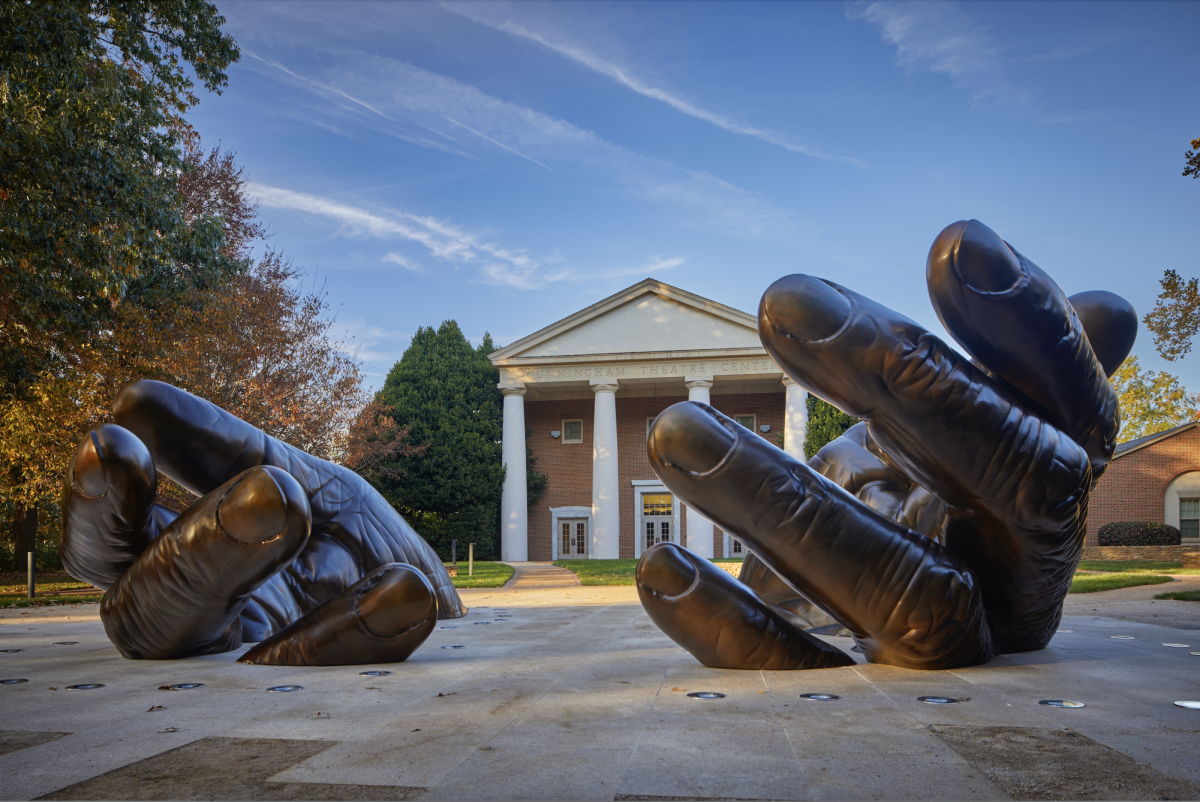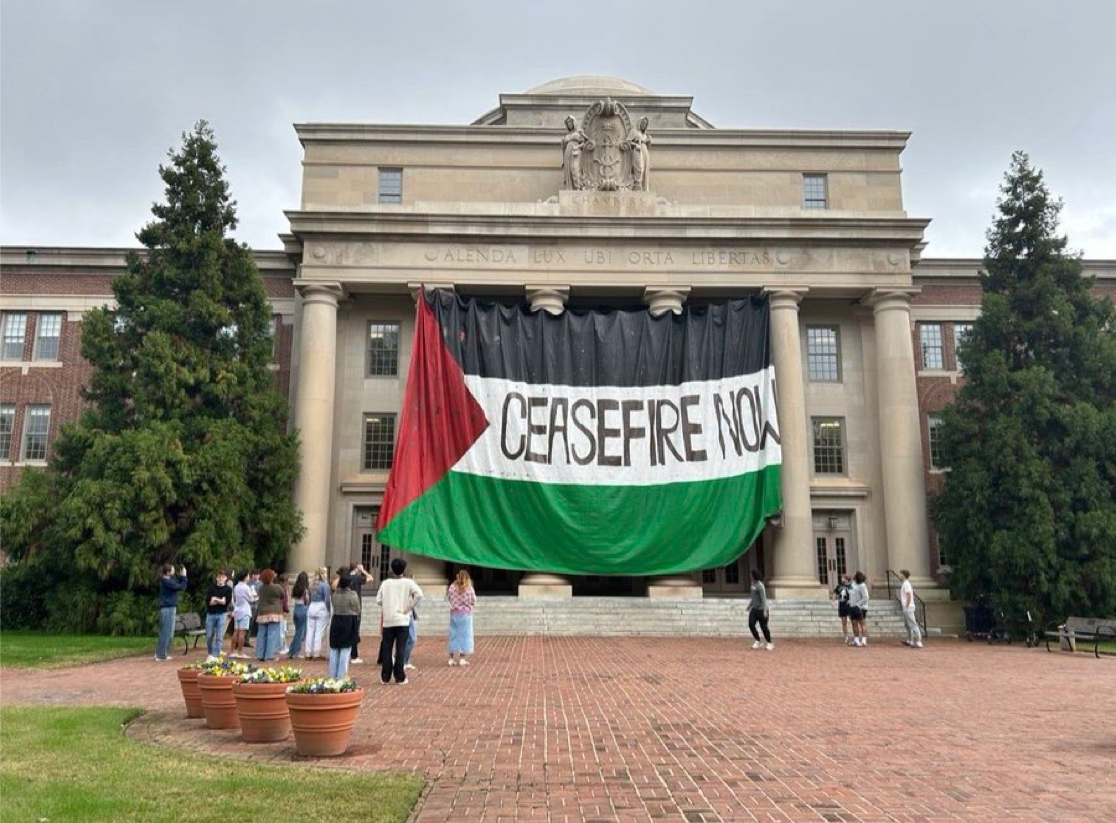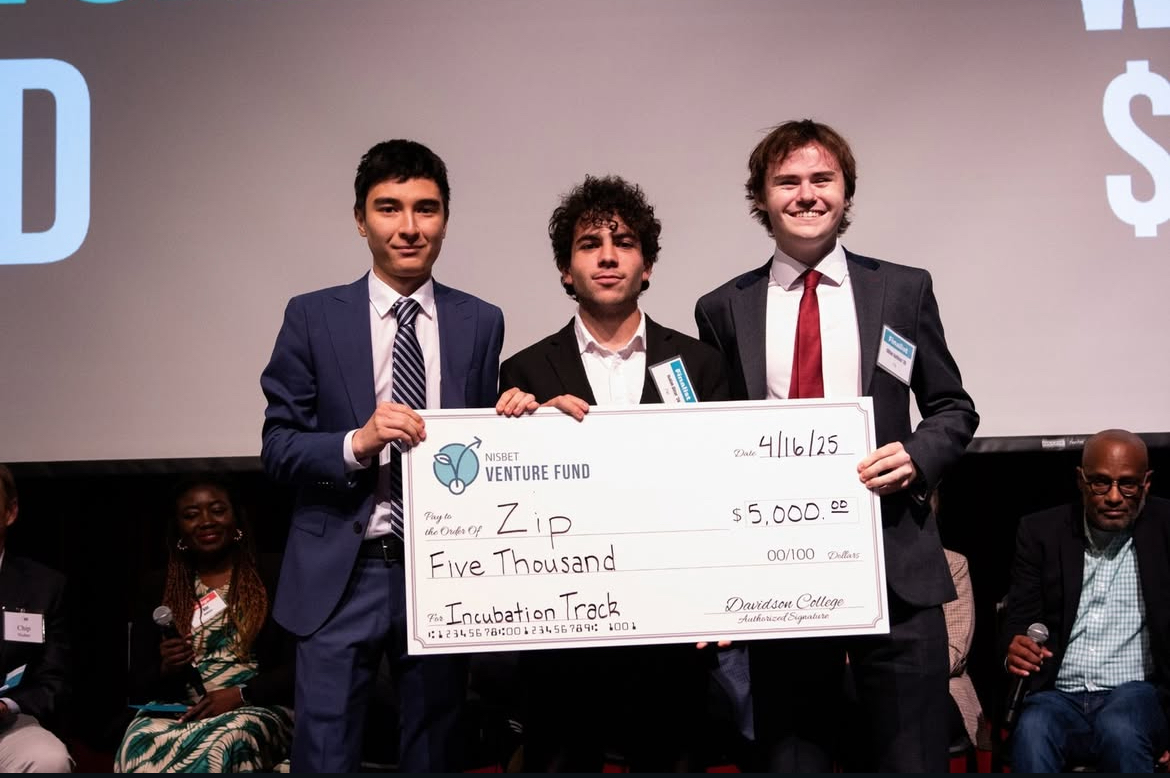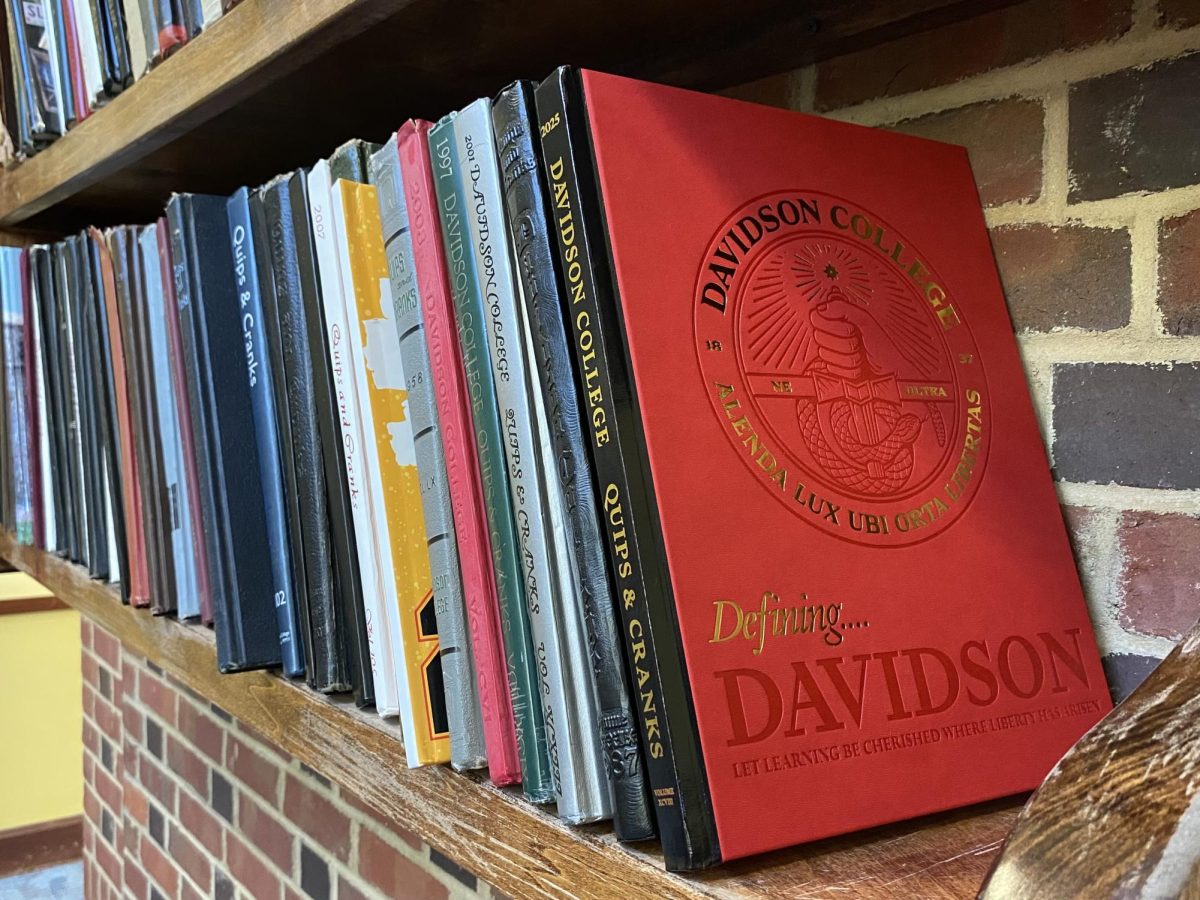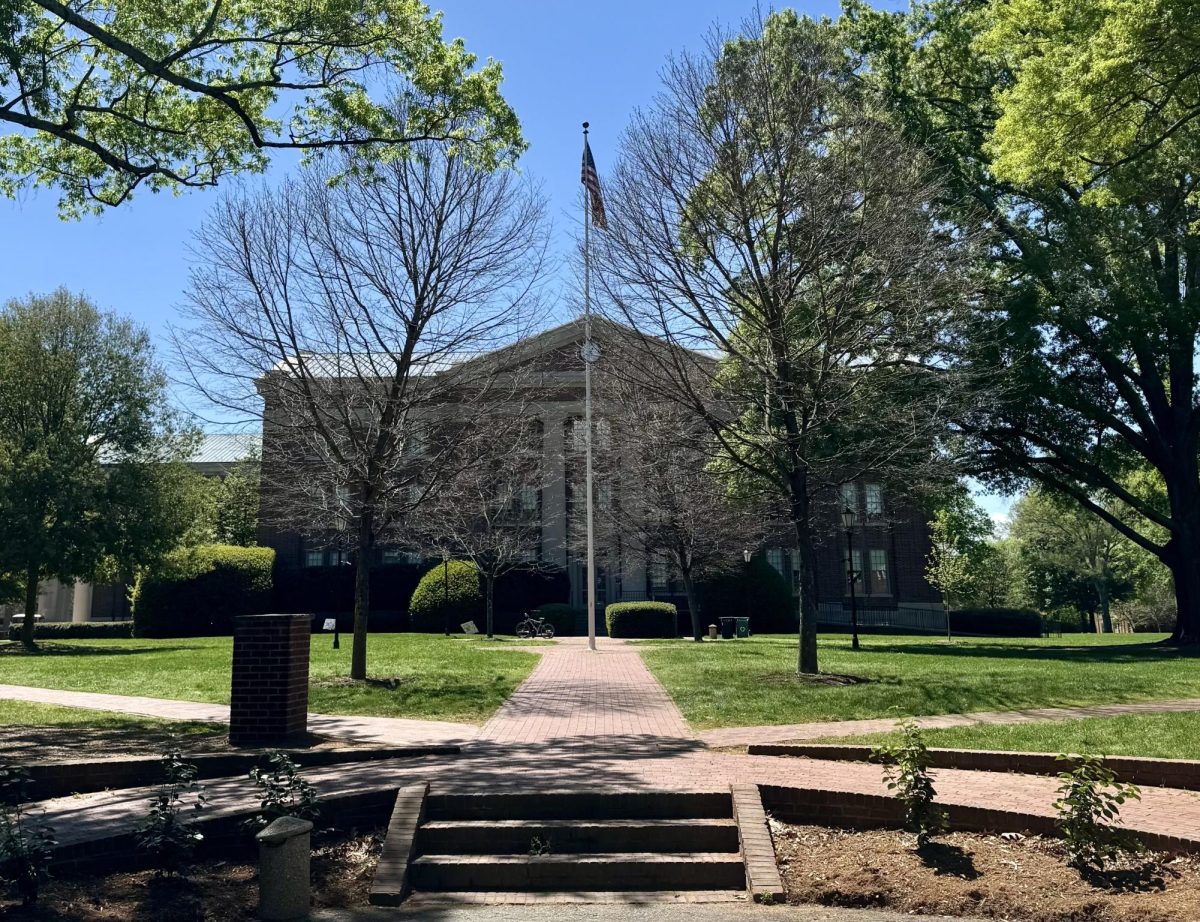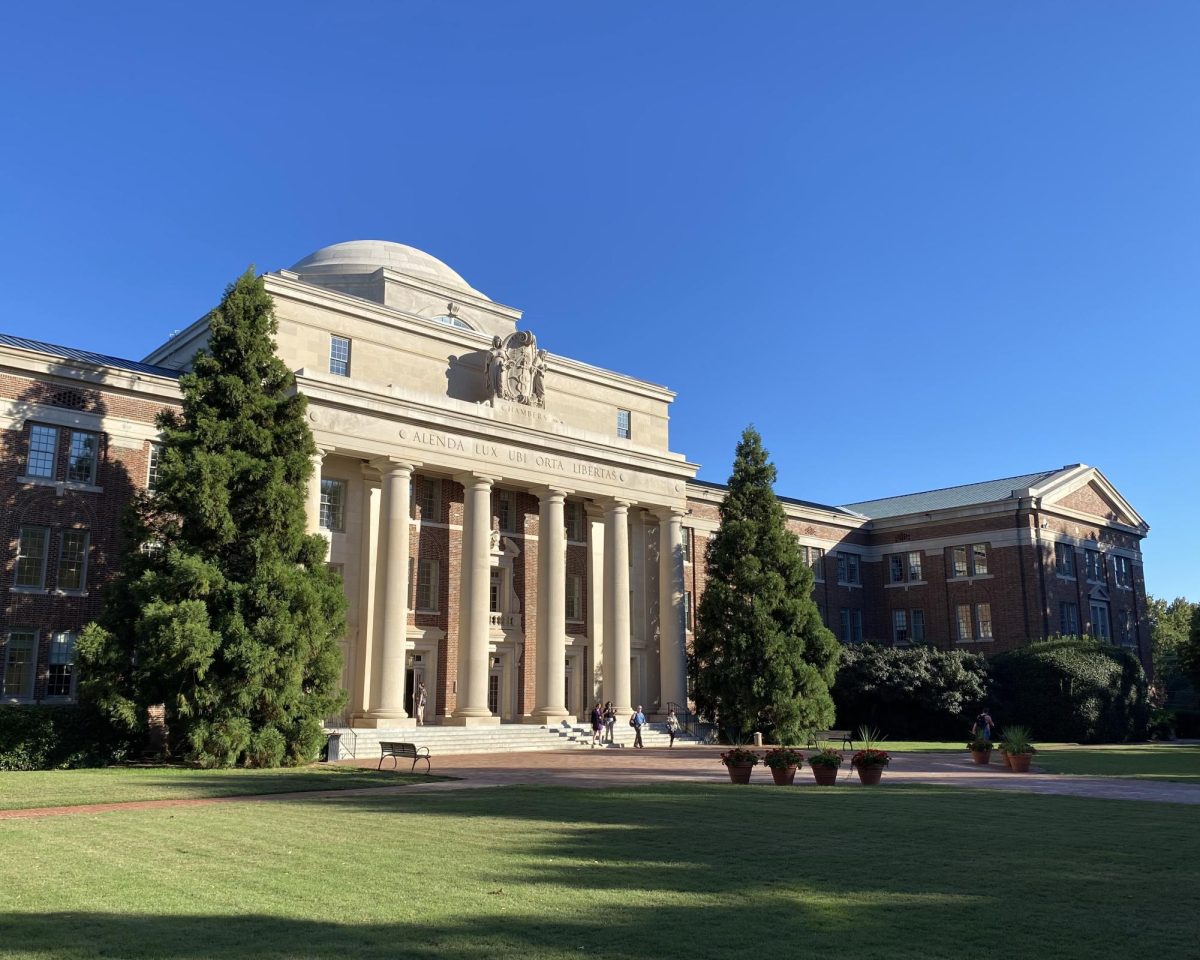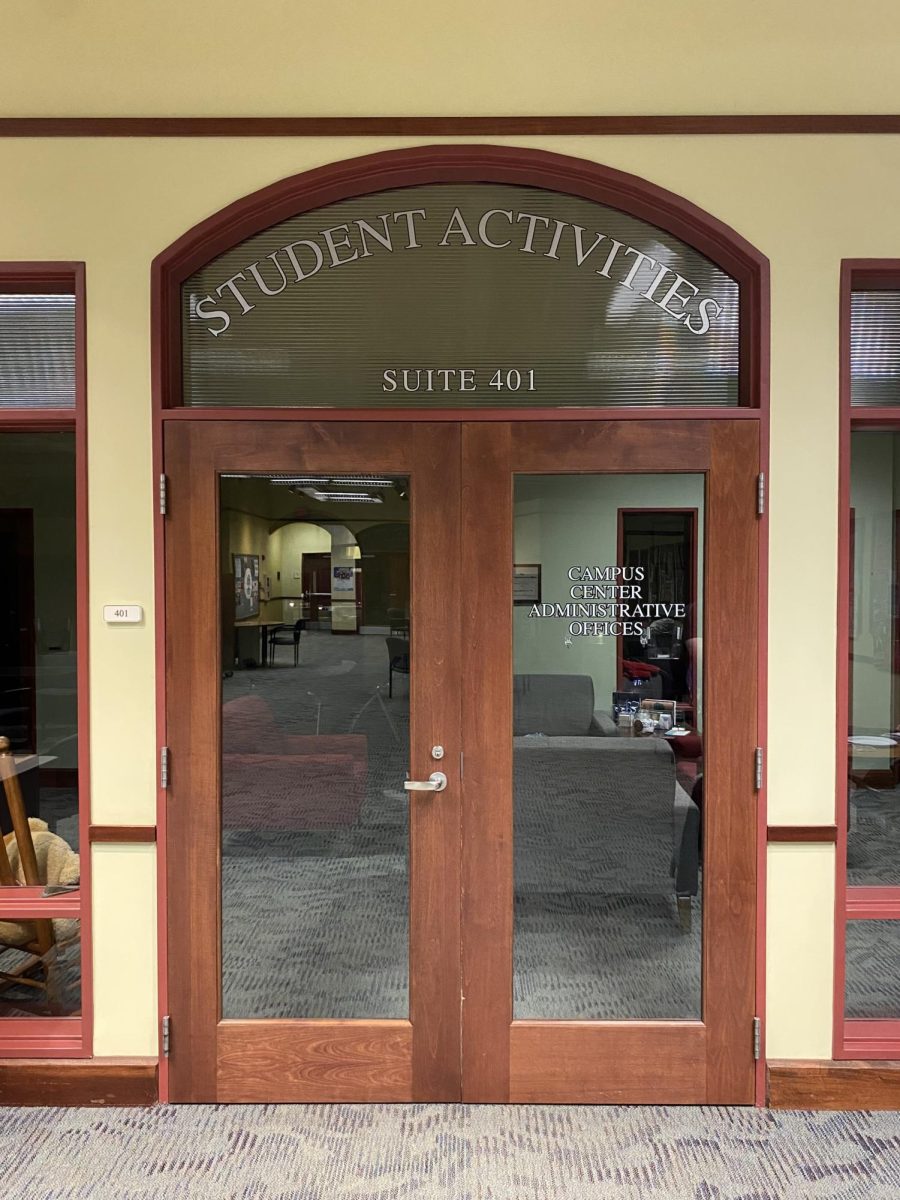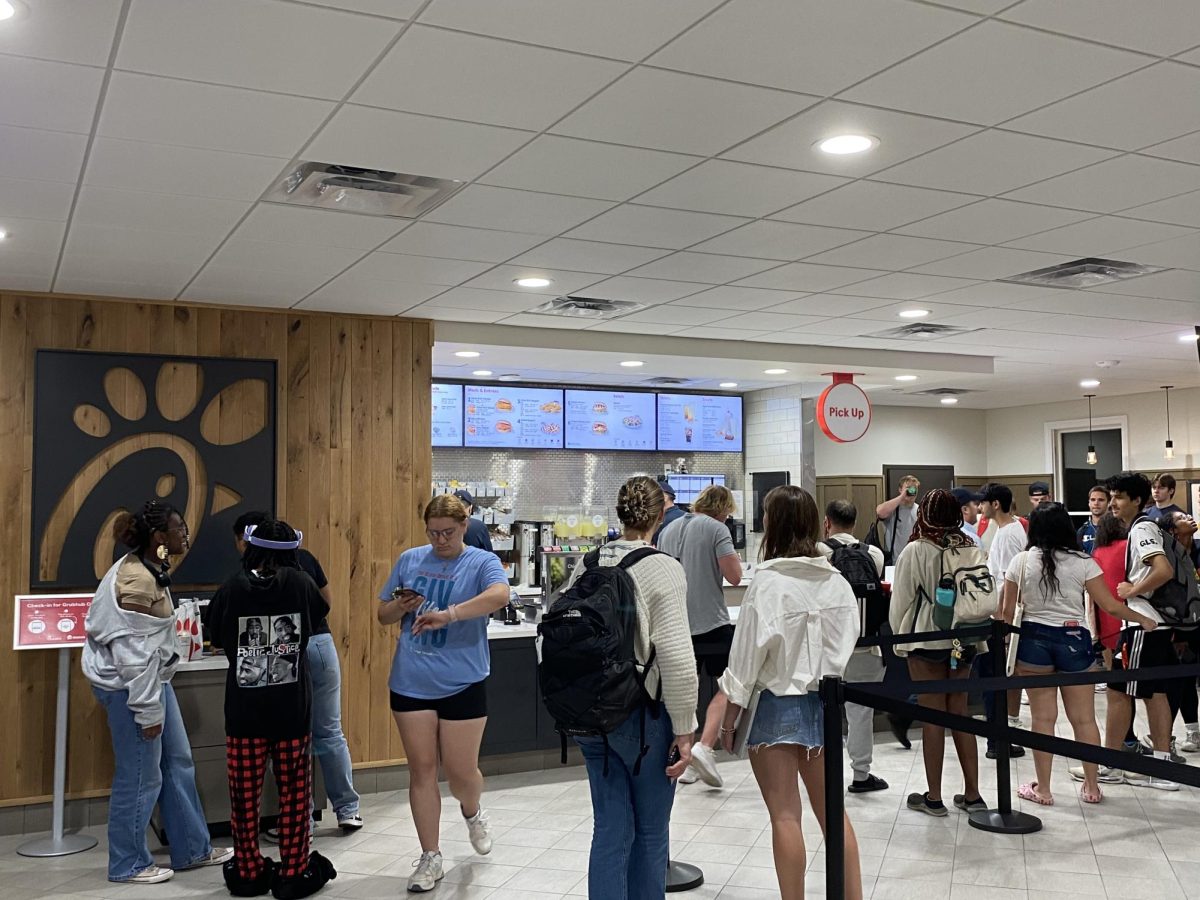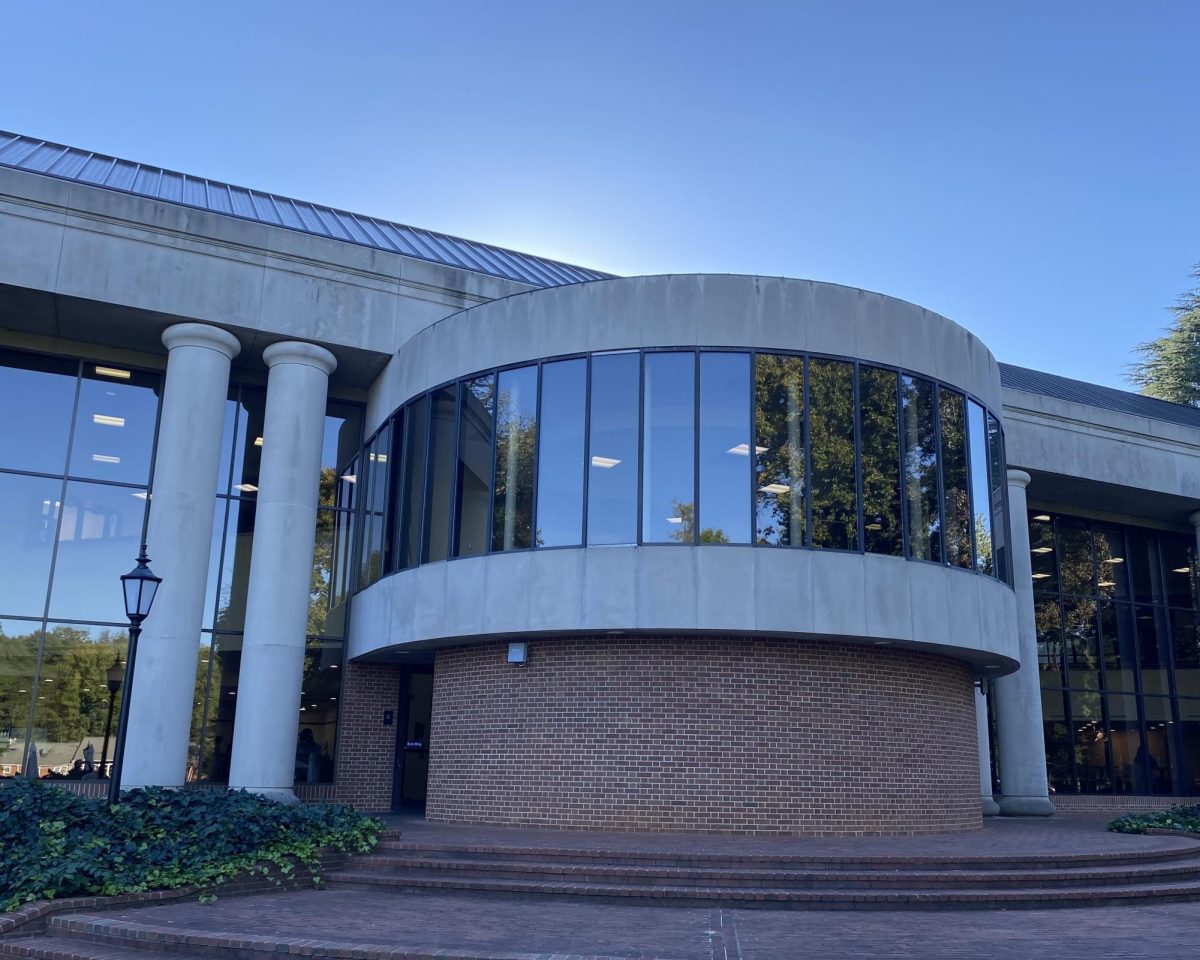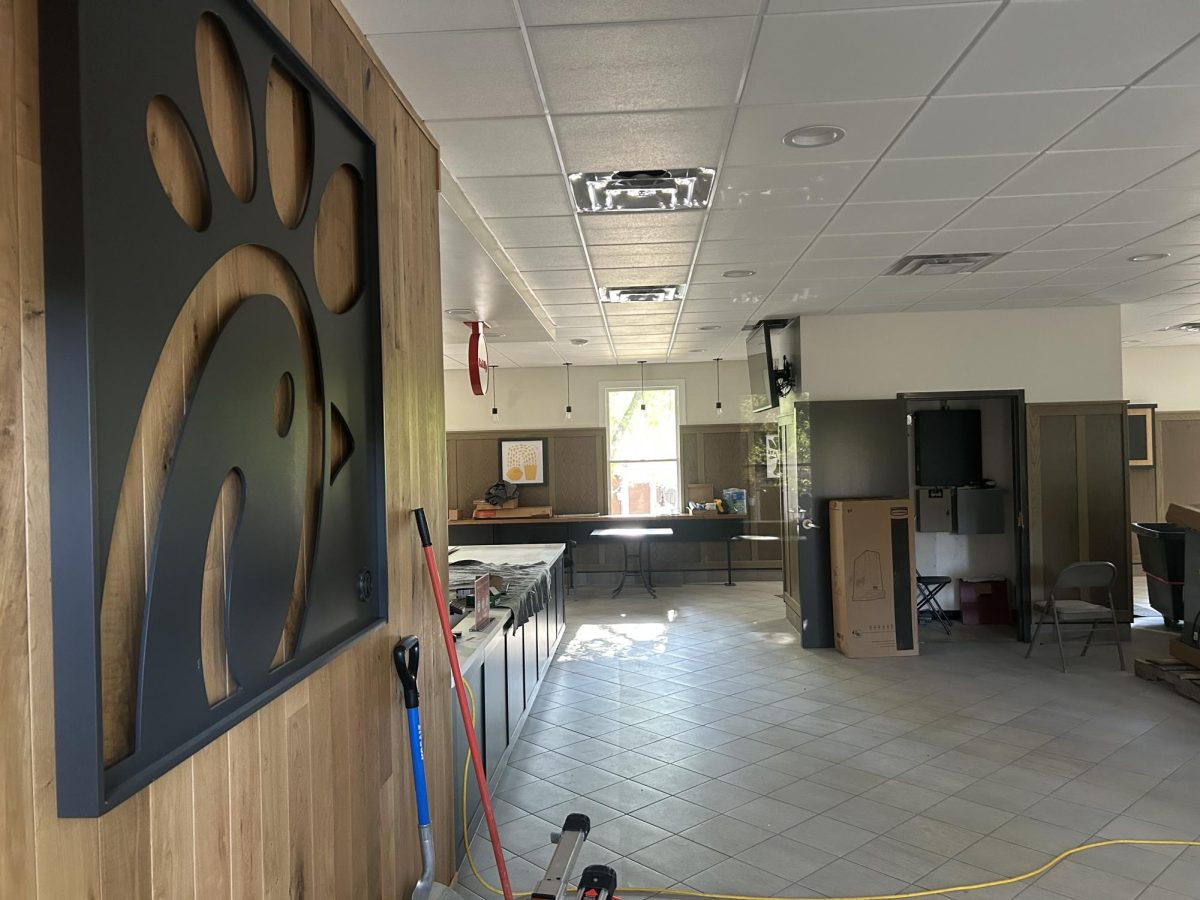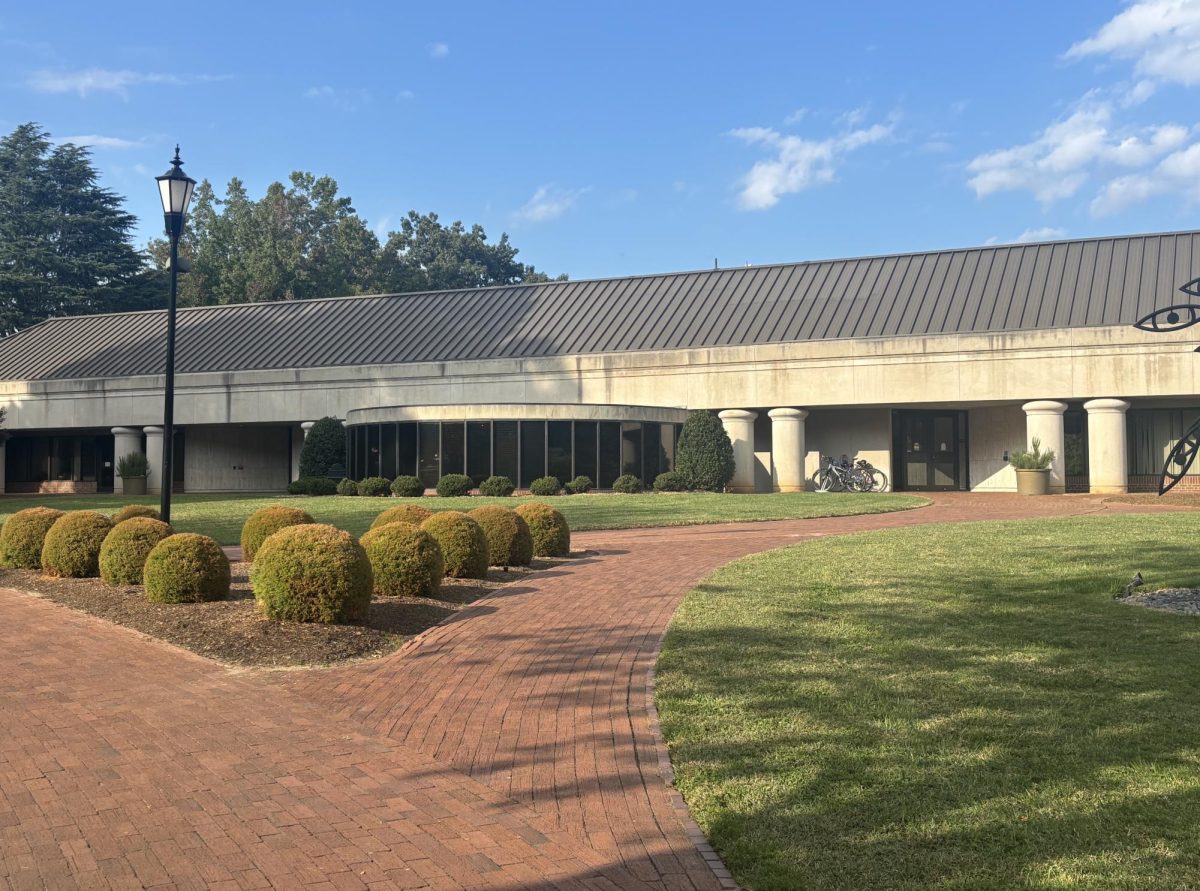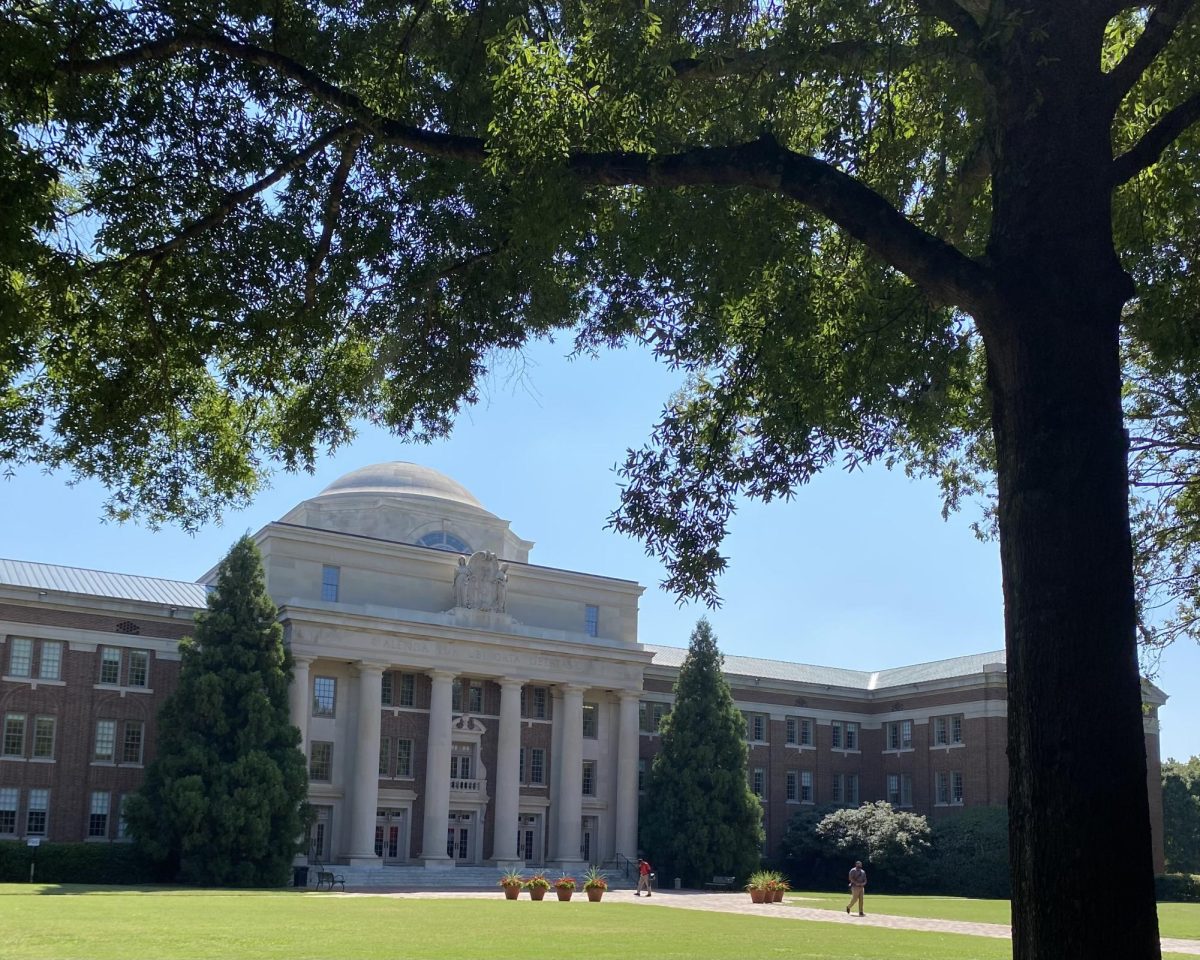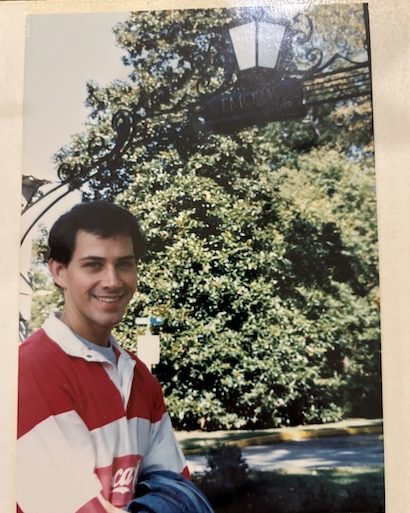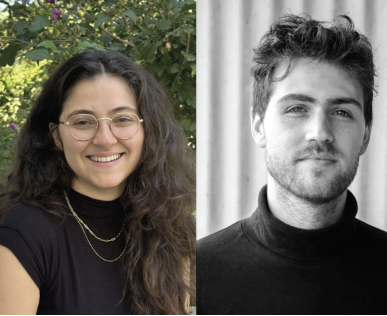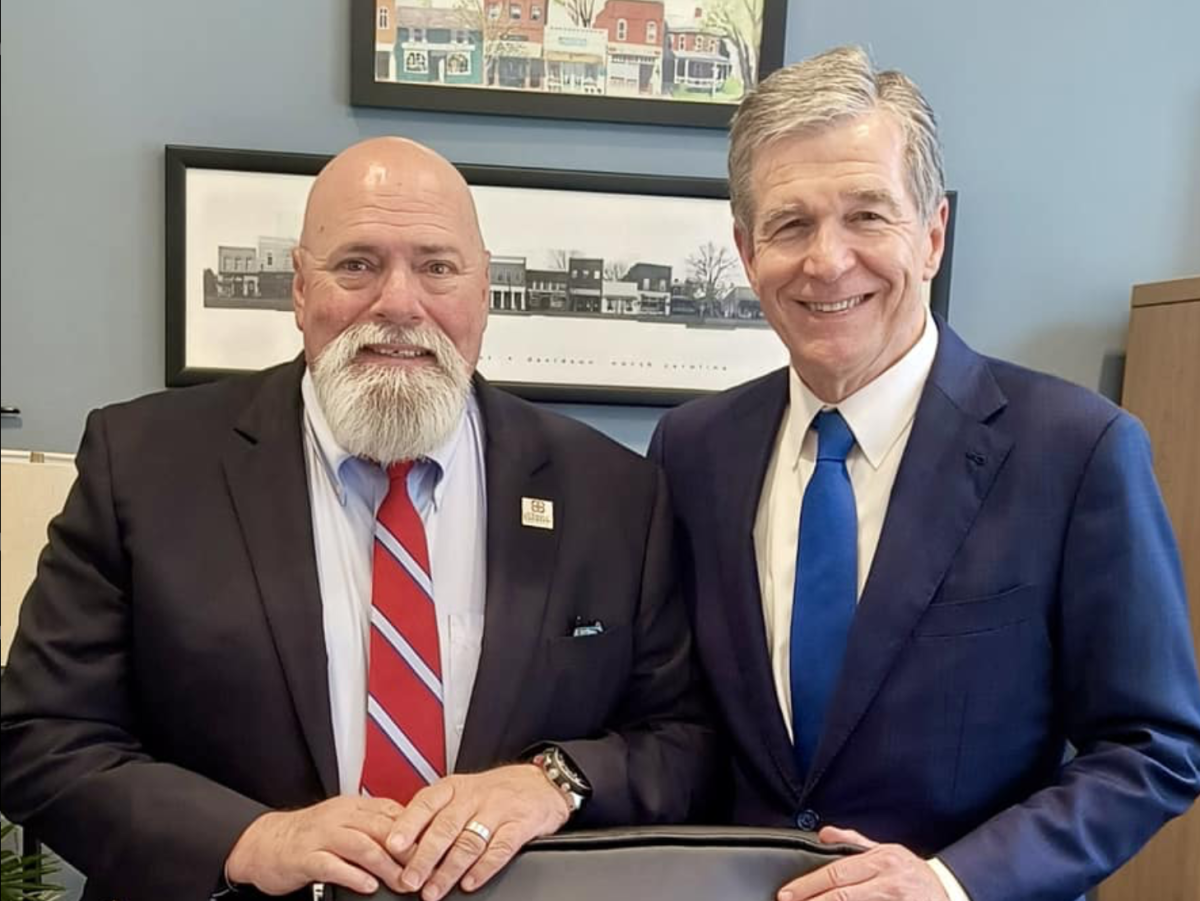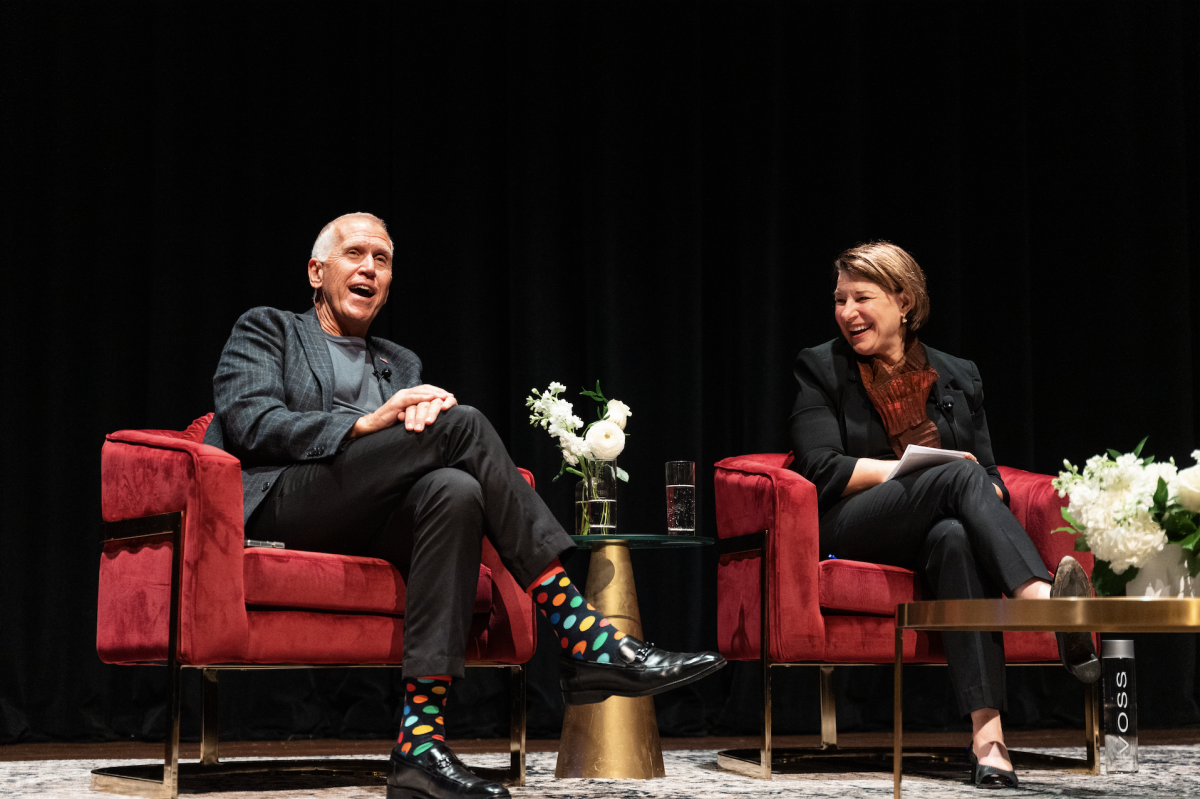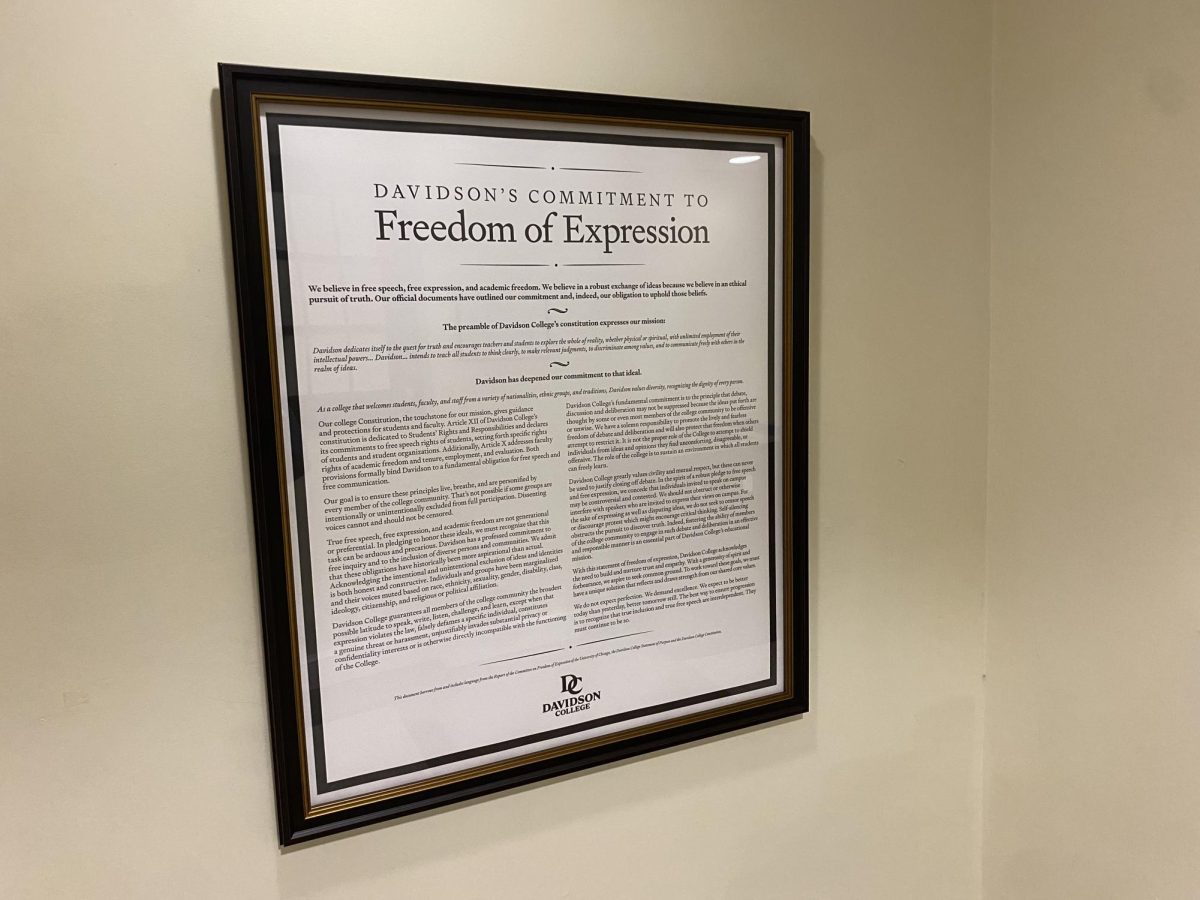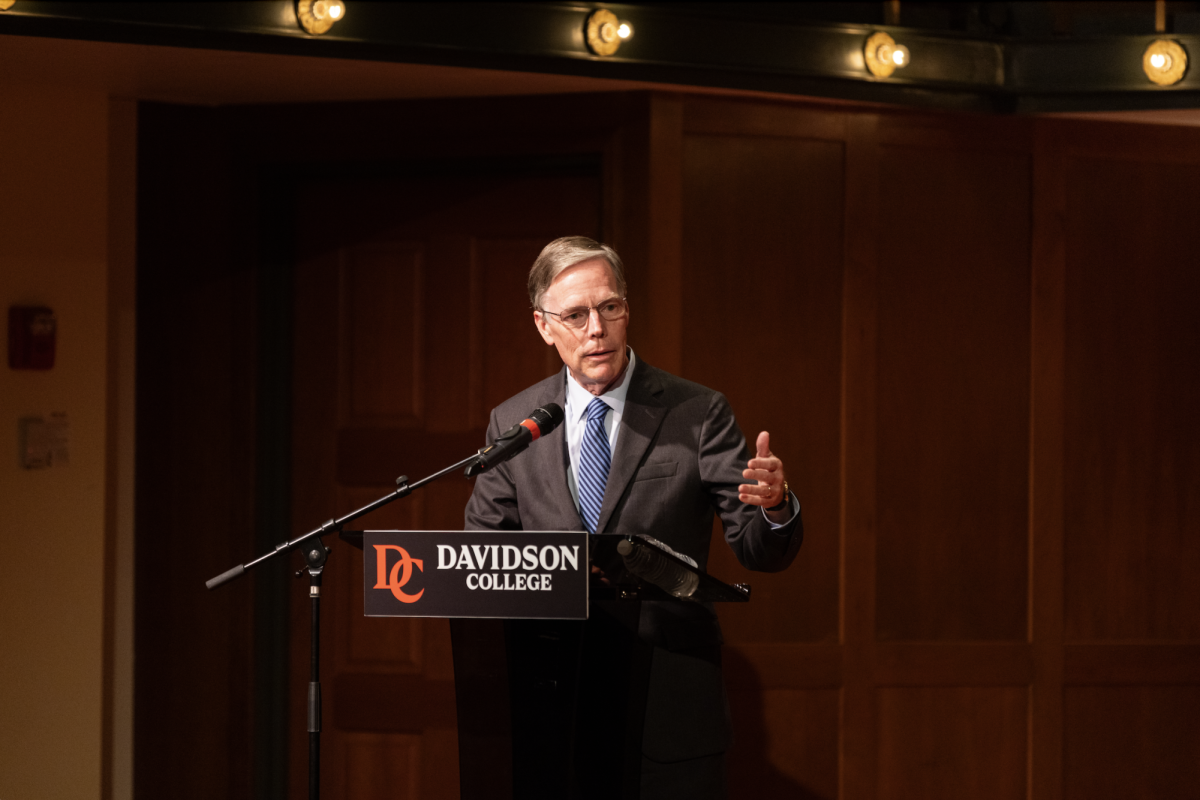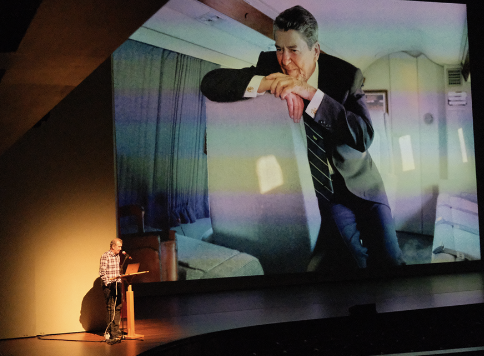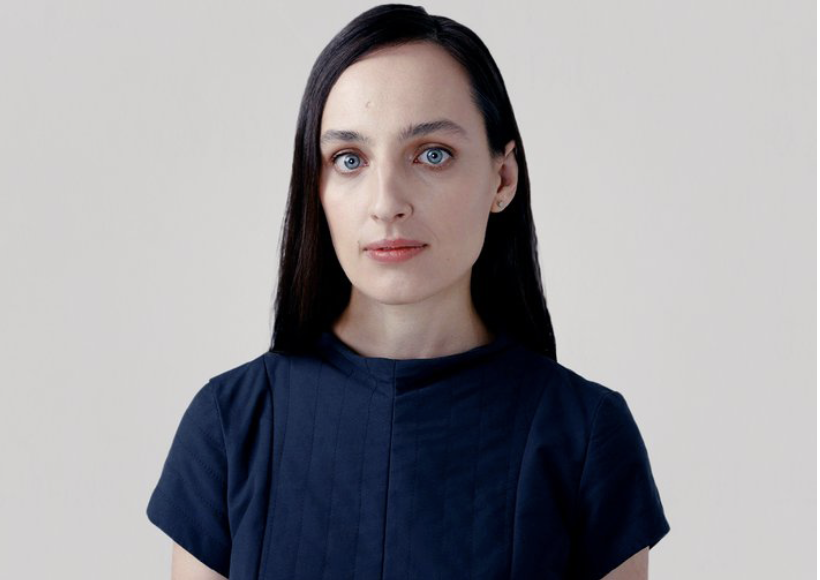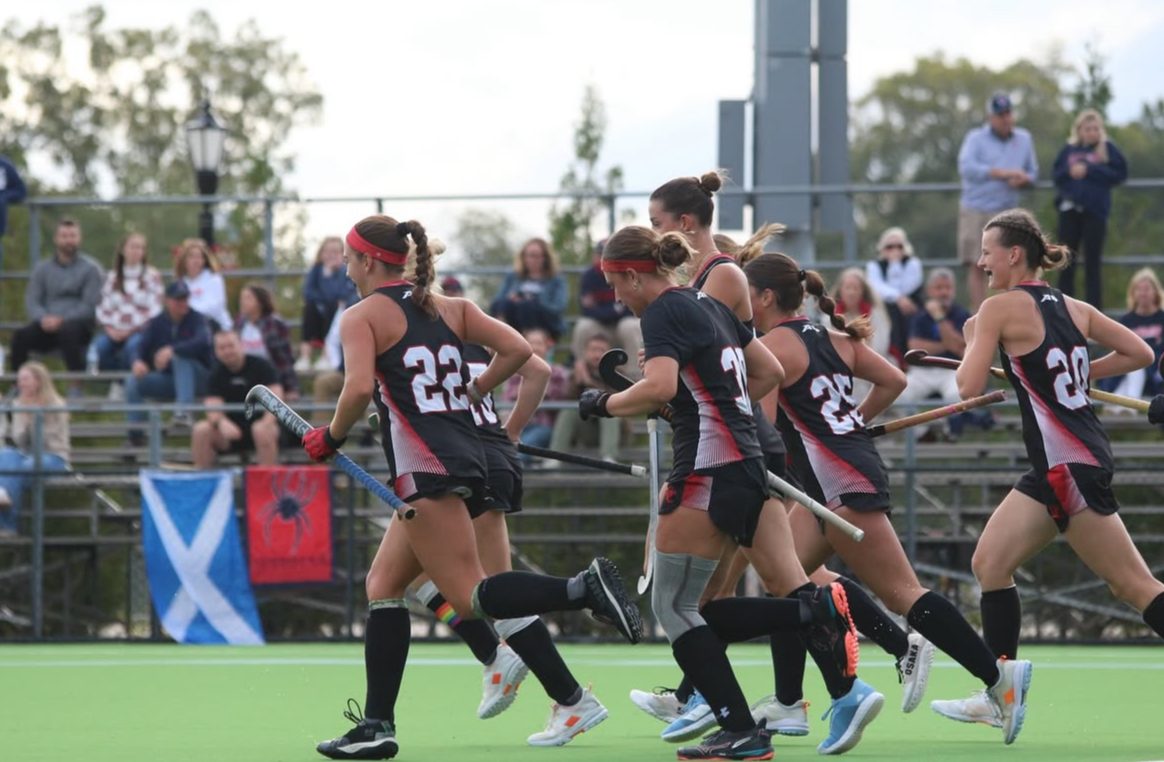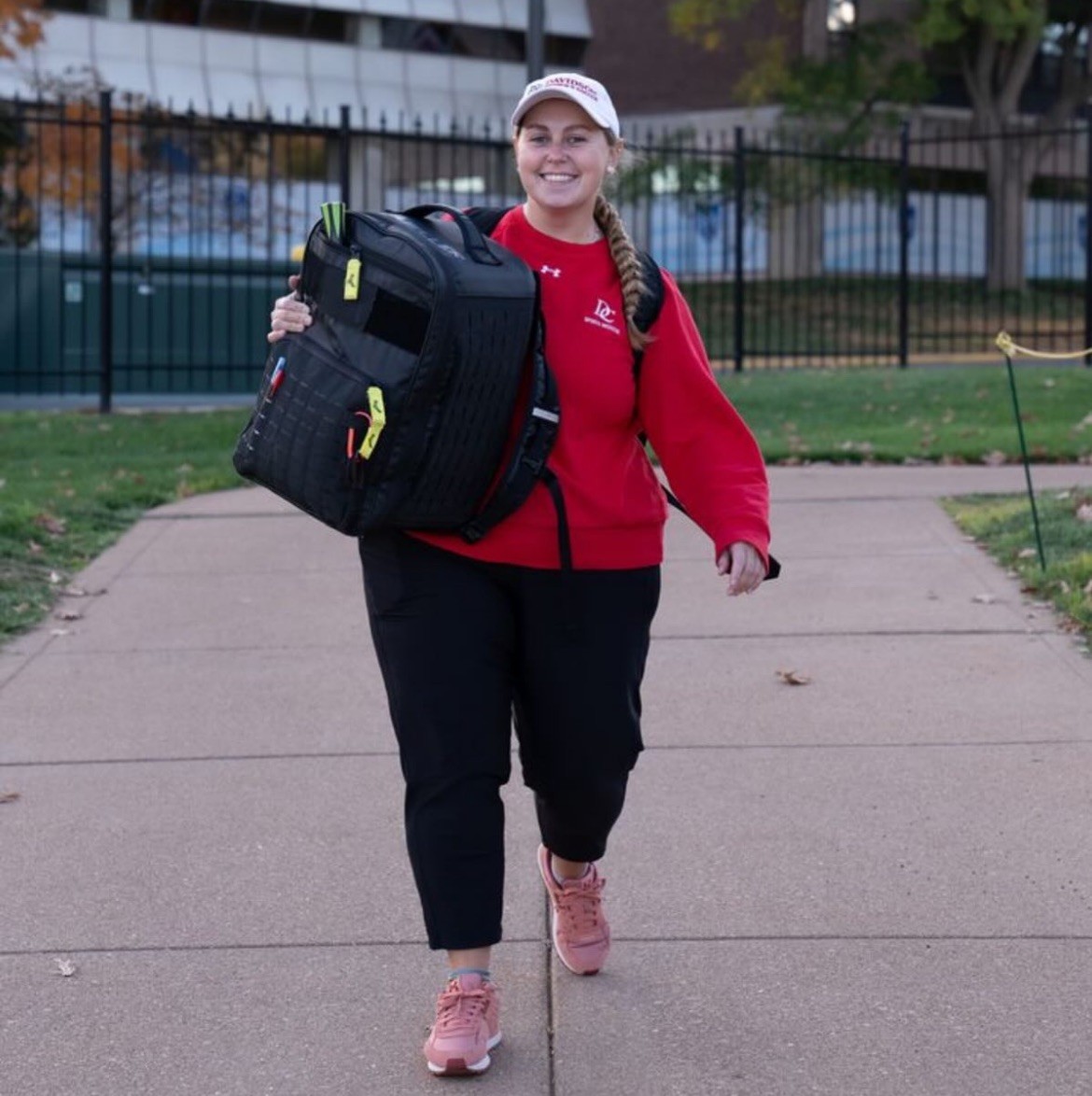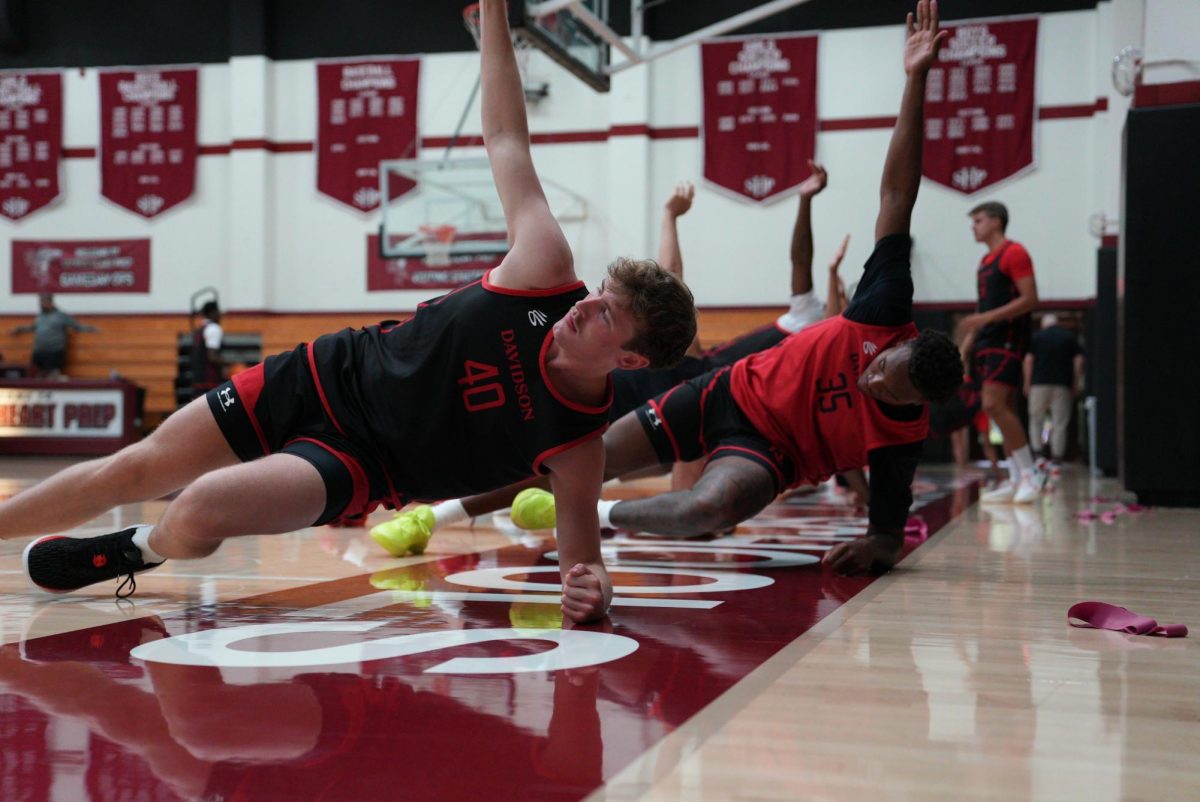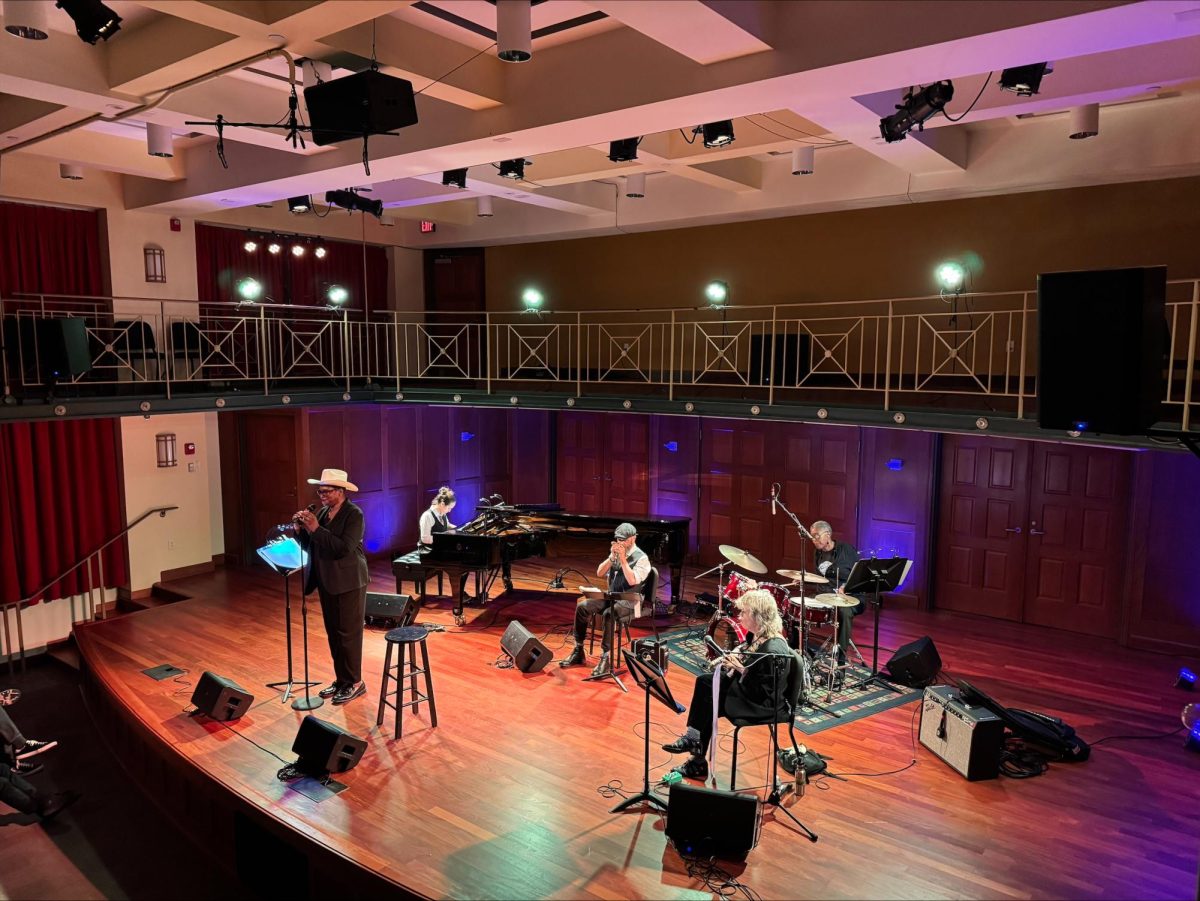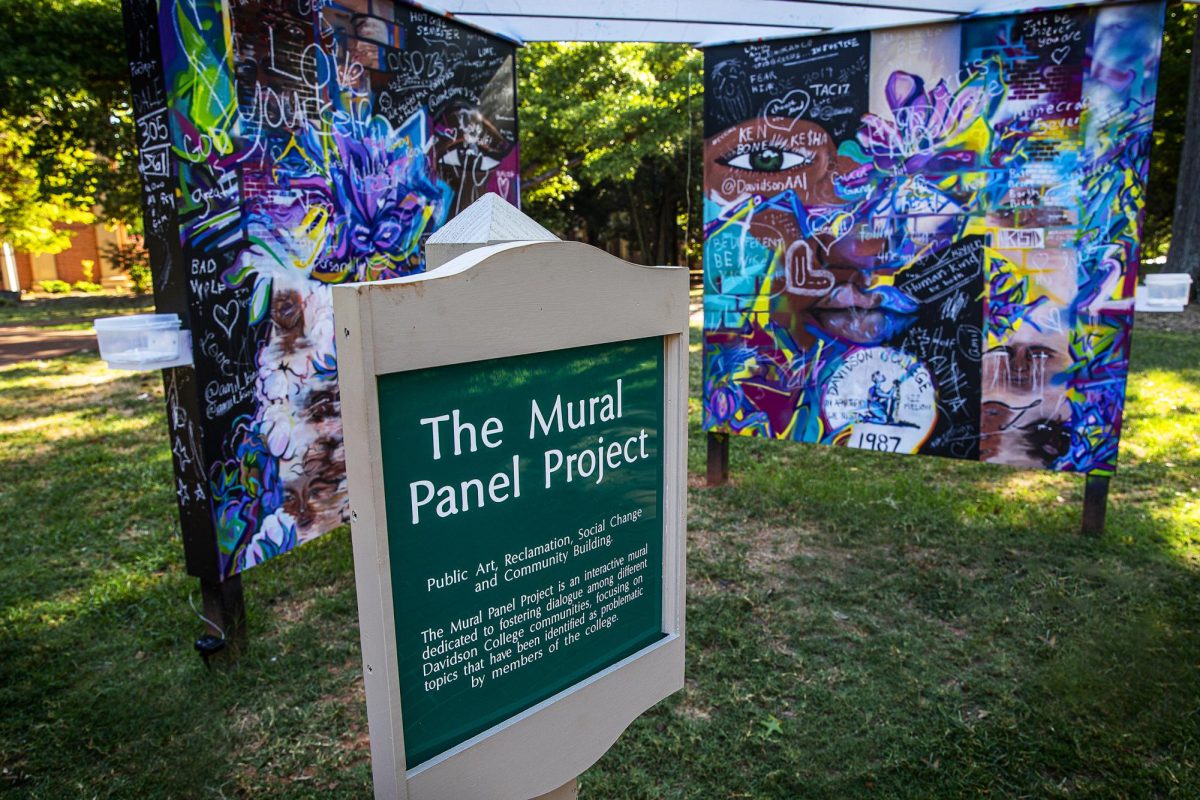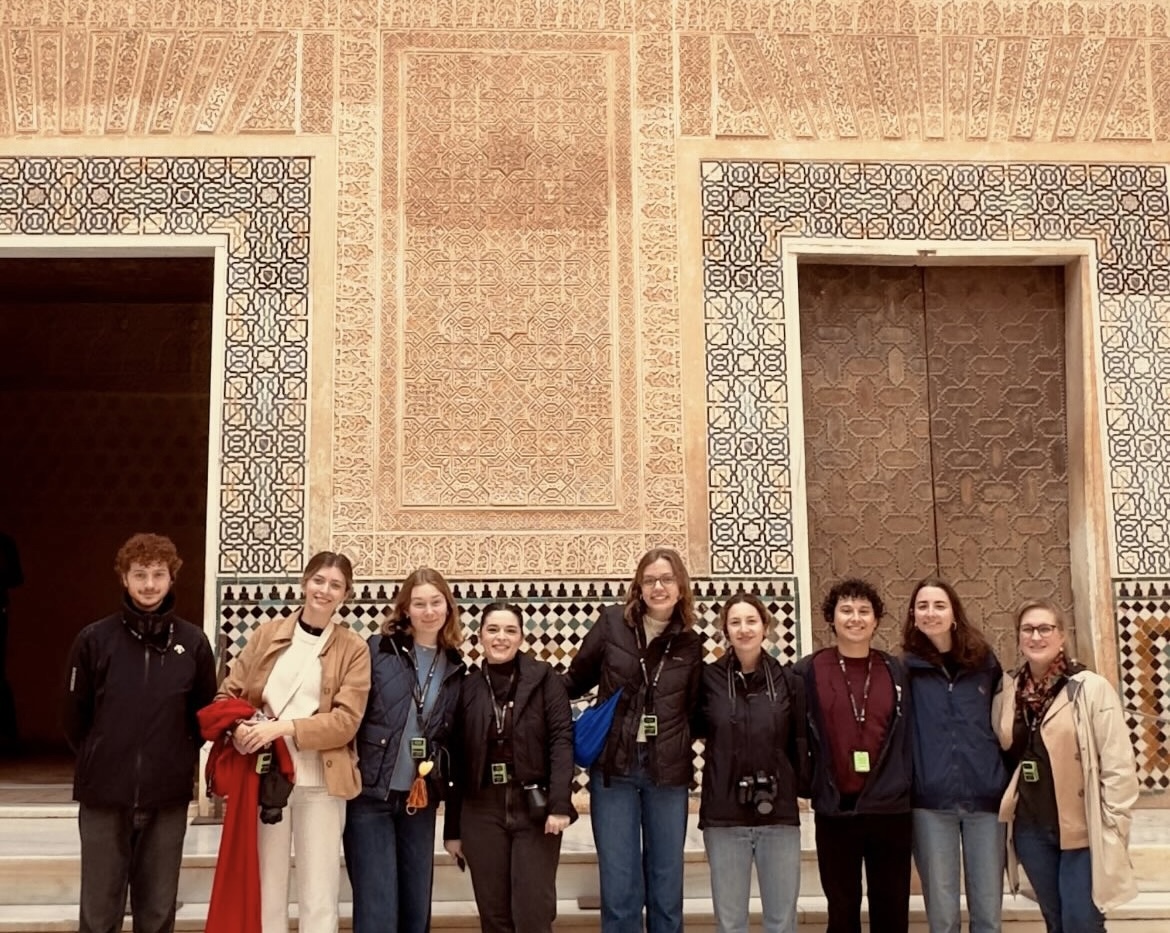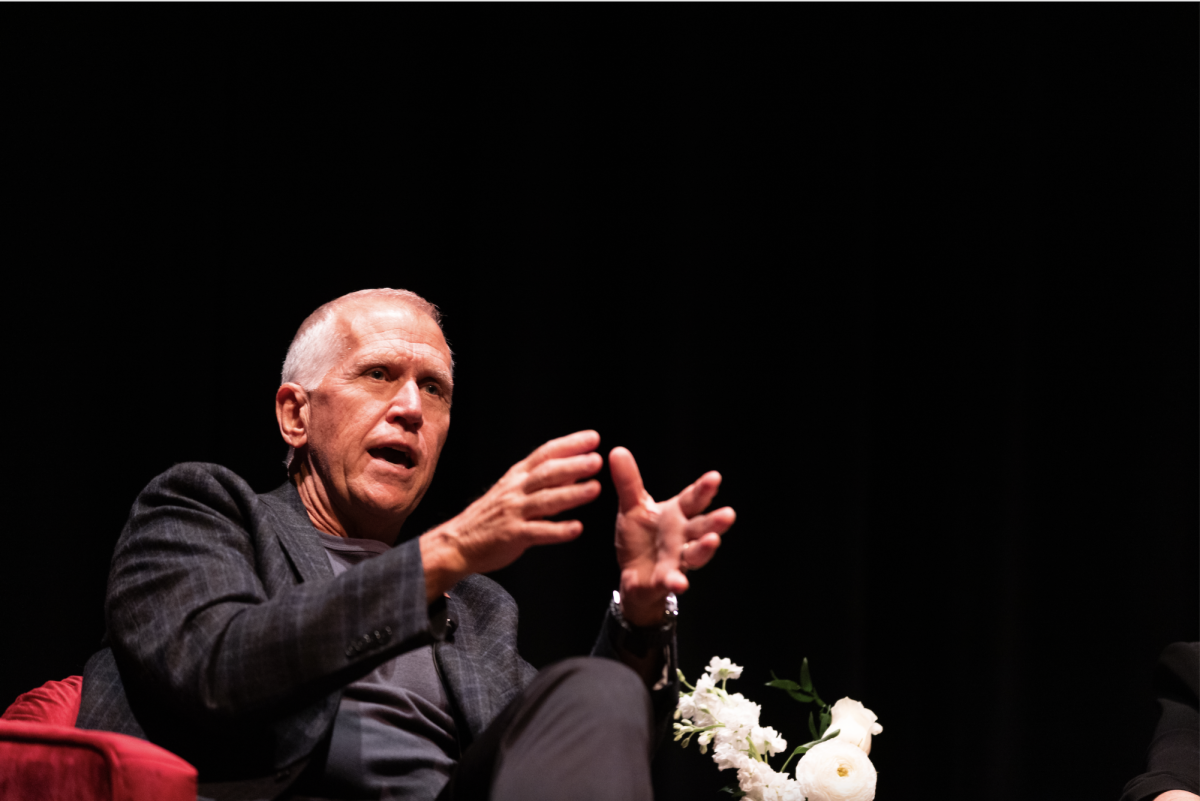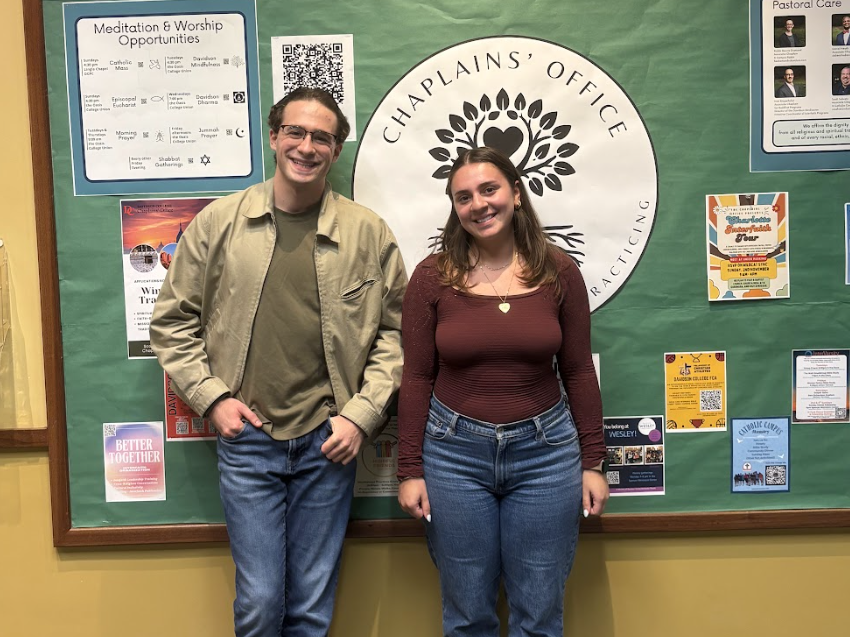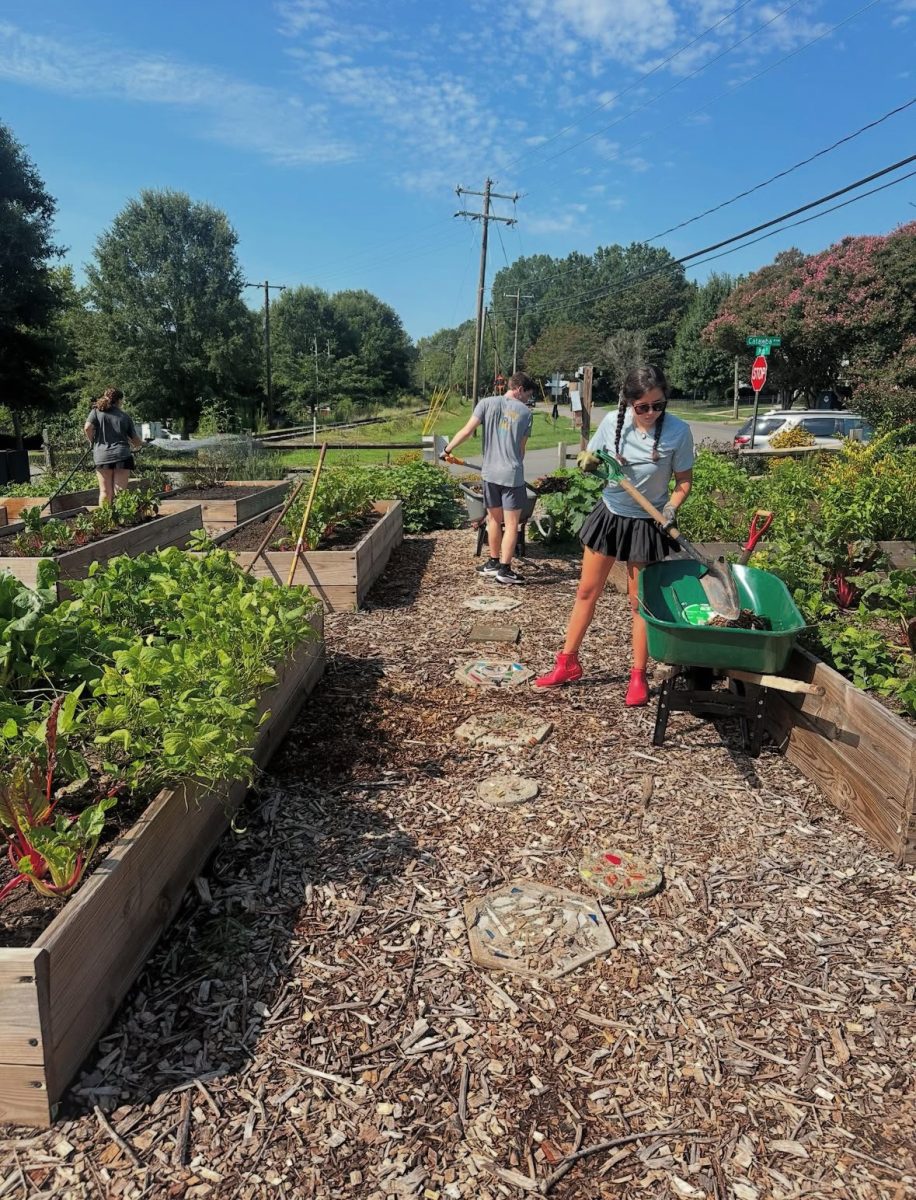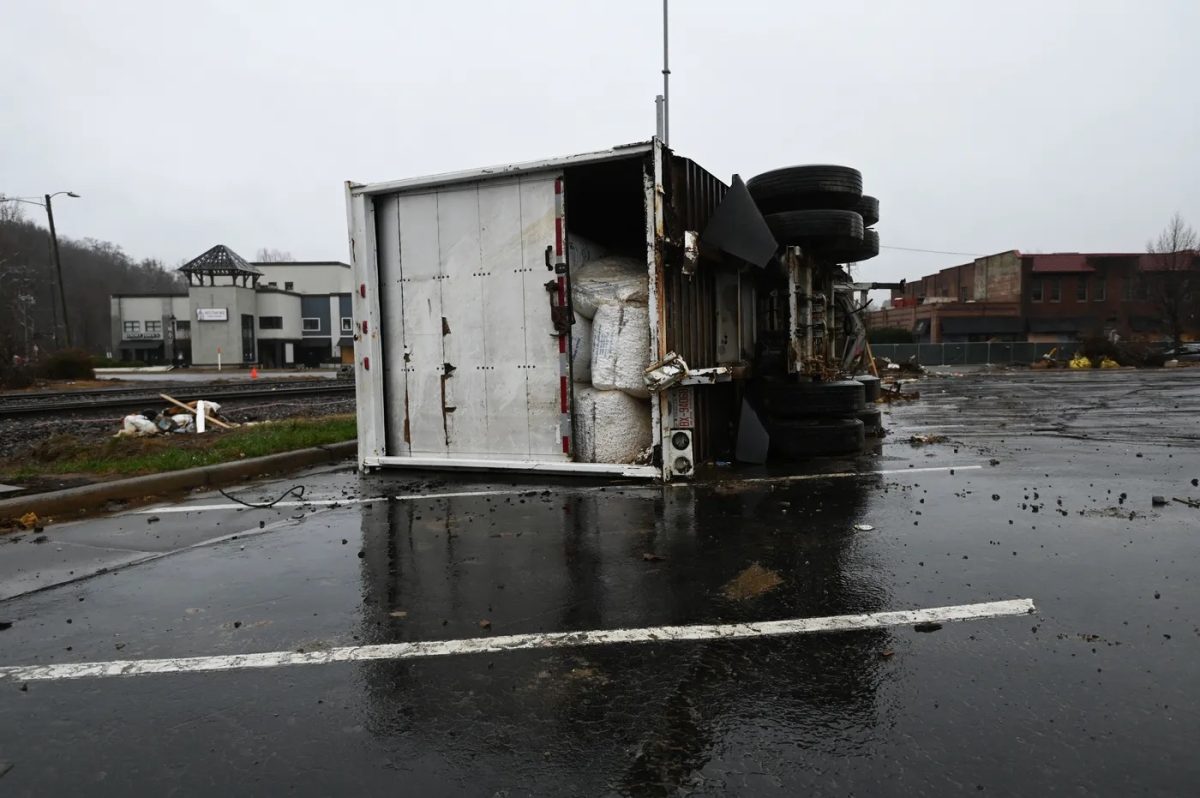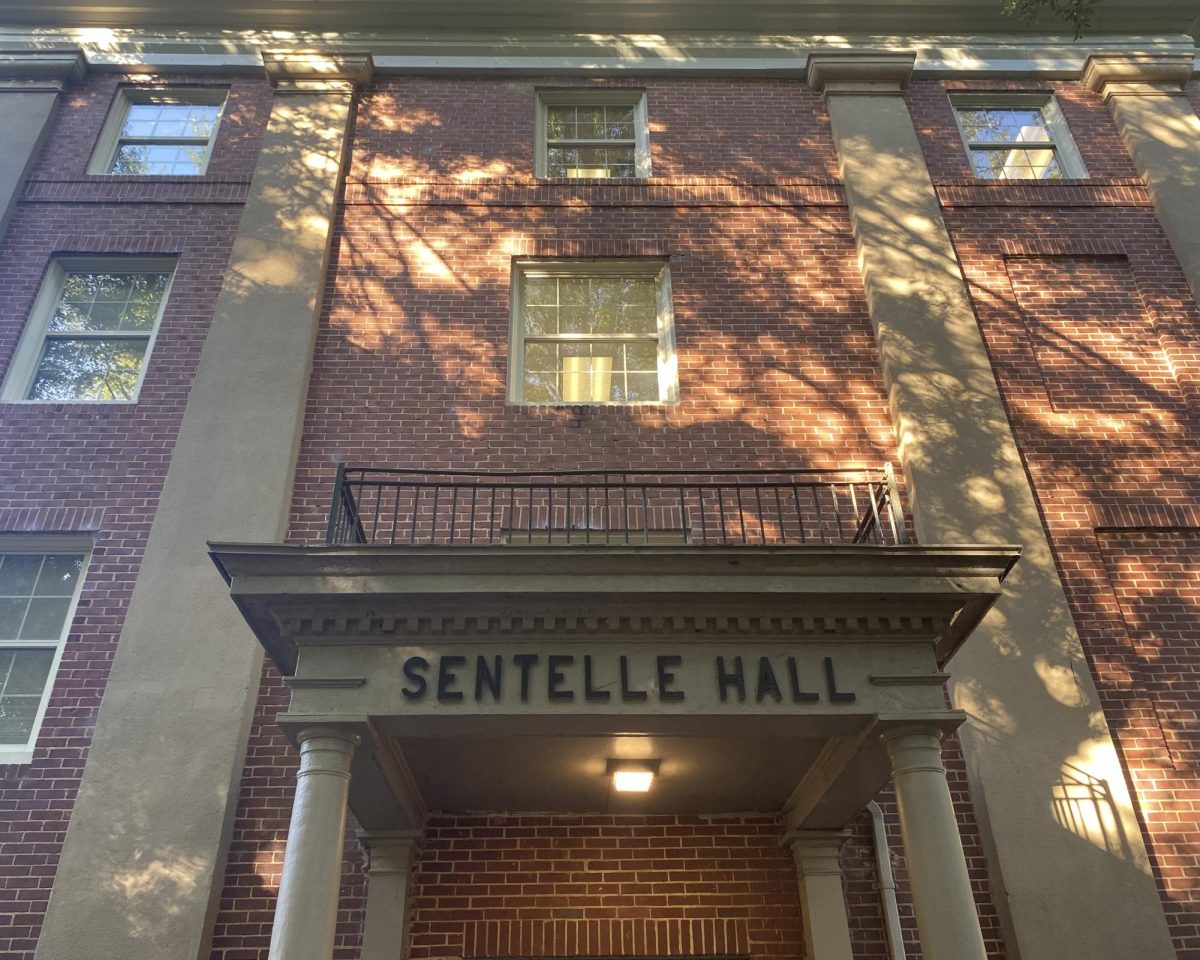Last week, students, professors, and community members gathered in the Lilly Family Gallery for the Deliberative Citizenship Initiative’s (DCI) Fall 2024 Deliberative Forum on Income and Wealth Inequality. The forum, which was split between an expert panel moderated by President Doug Hicks and small group deliberation led by DCI fellows, enabled attendees to consider different perspectives about if, how, and why society should address inequalities.
During the first hour, panelists Dr. Jessica Flanigan, Brian Balfour, Dr. Sean McKeever, and Robyn Lake Hamilton took turns answering questions posed by President Hicks. A clear divide emerged between those who believe society should address income and wealth disparities and those who believed it should not.
Dr. Flanigan, professor of leadership studies and philosophy, politics, economics, and law at the University of Richmond, argued that the problem is deprivation, not disparity. “We [the] people should focus on building a society where everybody has enough and not a society where we minimize gaps between the top and the bottom,” she said.
Balfour, senior vice president of research at the John Locke Foundation, echoed Dr. Flanigan’s sentiment. “I think the concern should be more about the absolute well-being of those in society, in particular those on the lowest income scale in society, rather than focusing in on the differences between folks in income and wealth,” Balfour said.
Dr. McKeever, professor of philosophy at Davidson College, disagreed. “What we need to address is economic and material inequalities insofar as they inhibit our ability to be independent and live freely,” he said.
Dr. McKeever made a distinction between addressing poverty, or material differences, and inequality, which can include systemic obstacles to financial stability. “Some people on the panel thought you should be concerned with poverty but not worried about inequality. I think you should be concerned about both. They’re both legitimate, but we both agree that they’re not the same thing,” he stated in an interview after the event.
Referencing her experience working with disadvantaged communities as CEO and president of the Urban League of Central Carolinas, Hamilton agreed with Dr. McKeever while reframing the question. “Why would we not want equity? Why would we not want everyone to do well?” Hamilton asked.
President Hicks then guided the panel to the question of redistributive justice. All of the panelists agreed that children today have unequal chances of flourishing. However, they disagreed on what should be done to address it.
To Dr. Flanigan and Balfour, one’s success in life is determined by personal characteristics, such as individual strengths, talents, and priorities, and posit that a free market economy with minimal government intervention will maximize individual prosperity.
On the other side of the argument, Dr. McKeever and Hamilton believe that systemic barriers and life circumstances often inhibit people’s ability to pursue their own life. In their opinion, some form of redistributive provisions are necessary to maintain individual freedoms.
For many, the topic lands close to home. According to a 2014 study by Economist Raj Chetty, Charlotte ranked last out of fifty metro areas in upward mobility, which measures economic opportunity and people’s ability to move out of poverty. Charlotte ranked thirty-eighth in upward mobility in 2024. Though a positive shift, Hamilton stressed that there is still room to improve.
The second half of the forum allowed participants to discuss questions related to income and wealth inequality in small groups and reflect on the panelists’ arguments. “[Dr.] McKeever brought up this really interesting argument that I thought was really compelling, where he said this future hypothetical pie [of available resources], it isn’t owned by anyone yet, and it’s up to us and state policies to decide how that pie is distributed so that everyone gets an equal amount,” Katie Jung ‘28, who attended the event, said.
President of the Davidson College Democrats Kailliou Macon-Goudeau ‘25 discussed the implications of income and wealth inequality for the United States as a whole. “If we had a system that spread out wealth more equally, we wouldn’t have this worry of small groups of people having extreme outsized influence on our elections and on our school boards and on our judges and on our legal system […] So there is this sense that we may be paying the cost of something social rather than just economic, for wealth inequality,” Macon-Goudeau said.
The group deliberations also allowed students to hear from a diverse group of community members. “I thought it was really interesting because they put us in groups with students our age, but also people who are a lot older, and I thought that that provided a lot of unique insight on how they think that wealth inequality should be regulated,” Jung said.
Each small group deliberation was facilitated by a trained student DCI fellow. To Fellow Zak Abdulahi ‘27, DCI events like the forum provide important opportunities to engage with opposing perspectives in a constructive manner. “I have been really concerned about polarization,” Abdulahi said. “I think deliberation is a successful way to find connection and address issues.”
“Despite us having different views and perspectives on how we should move forward, I thought that it was really reassuring to find that we also had a lot of common ground,” Jung said. “I think the point of the deliberation is obviously to have meaningful conversations, but also to realize that despite all of our differences, having shared values and having common ground is necessary.”
To President Hicks, the forum was an overwhelming success. “I think it was Davidson at its best, a chance for people to get together–students, faculty, staff, community–and talk about matters that are really, really important. We found a way to share perspectives that even when we disagreed, we did it with respect,” he said in an interview after the event.


